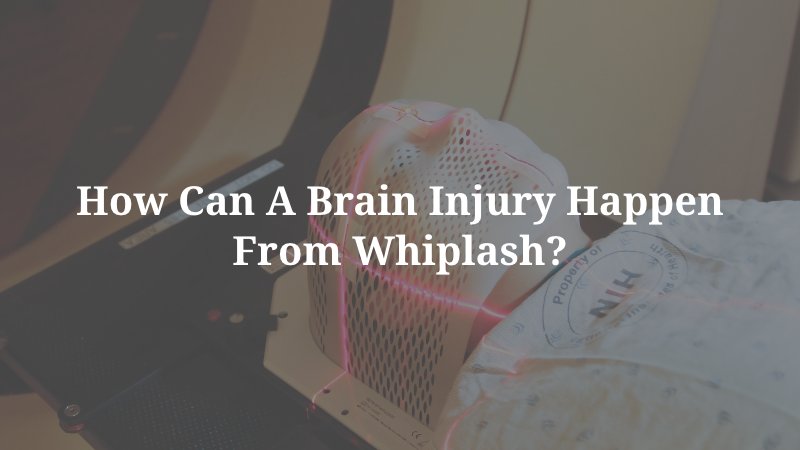The Connection Between Whiplash and Brain Injuries
Whiplash is an injury that occurs when the neck whips violently back and forth. It is one of the most common injuries people sustain in car accidents. However, when whiplash happens, it is also possible for the brain to suffer trauma.
Whiplash and Brain Injuries
Whiplash victims can have symptoms of brain damage that are not immediately apparent and do not appear on tests. As a result, a brain injury can go unnoticed for some time. However, when whiplash symptoms last years, it can be due to functional changes in the pain and posture processing parts of the brain, according to a study published in EBioMedicine. In other words, since the neck and brain are closely connected, a change in blood flow to areas of the brain involved in pain perception and processing sensory information from within the body can be responsible for long-term whiplash symptoms.
How Can a Brain Injury Happen From Whiplash?

Even without a direct impact on the head, a brain injury can happen from whiplash due to the brain getting twisted or compressed within the skull. Whiplash is a neck injury caused by the sudden, rapid back-and-forth movement of the neck. As a result, the brain may even slam against the inside of the skull if the whip motion is violent enough, leading to serious trauma and damage. Concussions are a common brain injury from whiplash. They can range in severity, but even mild concussions can have lasting effects.
Signs of a Brain Injury From Whiplash
If you are experiencing any of the following symptoms of whiplash or brain injury, see a doctor right away.
Headache
You may experience headaches at the base of the skull or near the upper part of the neck which cause severe pain, nausea (with or without vomiting), light and sound sensitivity, and worsening pain with movement. Headache or migraine symptoms may not appear for days or weeks after the accident.
Disorientation
Immediately following a brain injury, you may experience disorientation, as well as confusion, dizziness, and issues remembering the events leading up to the accident or the accident itself. In addition, you may temporarily lose consciousness and/or have a “coming to” sensation.
Sensory Problems
Ringing in the ears, blurred vision, and sensitivity to light, sound, smells, and movement may occur, along with problems with balance and/or coordination.
Changes in Sleep Patterns
You may feel fatigued or excessively drowsy, have difficulty waking, or be unable to fall or stay asleep.
Behavioral Changes
Changes in mood and behavior, such as excessive irritability, anxiousness, or depression. These symptoms can lead to problems in relationships with friends, family, or at work.
While whiplash and brain trauma can have serious adverse effects, treatment options are available. It is critical that you receive a proper diagnosis from a trained medical professional so that you can begin receiving the necessary care. If another party is responsible, speak to an Atlanta Brain Injury Lawyer as soon as possible, as you may be owed compensation.

